
Nantes: The Hidden Gem of the Loire Valley
Nantes, nestled in the heart of the Loire Valley, is a city that subtly blends the charm of its historical past with a vibrant, modern culture. Once the capital of the Duchy of Brittany, Nantes is now a bustling metropolis known for its rich history, architectural marvels, and innovative art scenes. Start your journey at the Château des Ducs de Bretagne, a striking castle that showcases the city's medieval heritage. Wander through its courtyards and explore the Nantes History Museum to get a sense of the city's storied past. Just a short walk away, you'll find the magnificent Nantes Cathedral, a Gothic masterpiece that took over 400 years to complete. Art enthusiasts will be captivated by the Île de Nantes, a revitalized former industrial area now brimming with contemporary art installations, including the awe-inspiring Les Machines de l'île. Here, you can ride a gigantic mechanical elephant and marvel at the intricate, whimsical creations that blur the line between art and engineering. Nature lovers will find solace in the Jardin des Plantes, a lush botanical garden perfect for a peaceful stroll. For a taste of local life, head to the vibrant Talensac Market, where you can sample regional delicacies such as Muscadet wine and fresh seafood. Nantes is also a hub for innovative cuisine, with numerous restaurants offering a fusion of traditional French dishes and modern culinary techniques. Be sure to try the local specialty, the gâteau nantais, a delicious rum-soaked almond cake. With its mix of historical landmarks, cutting-edge art, and vibrant local culture, Nantes is a city that invites you to explore and discover its many treasures.
Local tips in Nantes
- Buy a Nantes Pass for free access to many attractions and unlimited public transport.
- Visit Les Machines de l'île early to avoid long lines, especially during weekends.
- Try to visit the Talensac Market in the morning for the freshest produce and seafood.
- Explore the city by bike; Nantes has an extensive network of cycling paths.
- Take a boat tour along the Loire River for a unique perspective of the city.
Neighbourhoods in Nantes
Nantes: The Hidden Gem of the Loire Valley
Nantes, nestled in the heart of the Loire Valley, is a city that subtly blends the charm of its historical past with a vibrant, modern culture. Once the capital of the Duchy of Brittany, Nantes is now a bustling metropolis known for its rich history, architectural marvels, and innovative art scenes. Start your journey at the Château des Ducs de Bretagne, a striking castle that showcases the city's medieval heritage. Wander through its courtyards and explore the Nantes History Museum to get a sense of the city's storied past. Just a short walk away, you'll find the magnificent Nantes Cathedral, a Gothic masterpiece that took over 400 years to complete. Art enthusiasts will be captivated by the Île de Nantes, a revitalized former industrial area now brimming with contemporary art installations, including the awe-inspiring Les Machines de l'île. Here, you can ride a gigantic mechanical elephant and marvel at the intricate, whimsical creations that blur the line between art and engineering. Nature lovers will find solace in the Jardin des Plantes, a lush botanical garden perfect for a peaceful stroll. For a taste of local life, head to the vibrant Talensac Market, where you can sample regional delicacies such as Muscadet wine and fresh seafood. Nantes is also a hub for innovative cuisine, with numerous restaurants offering a fusion of traditional French dishes and modern culinary techniques. Be sure to try the local specialty, the gâteau nantais, a delicious rum-soaked almond cake. With its mix of historical landmarks, cutting-edge art, and vibrant local culture, Nantes is a city that invites you to explore and discover its many treasures.
When is the best time to go to Nantes?
Iconic landmarks you can’t miss
Les Machines de l'Île
Explore the imaginative realm of Les Machines de l'île, where art and engineering create a whimsical experience in Nantes.
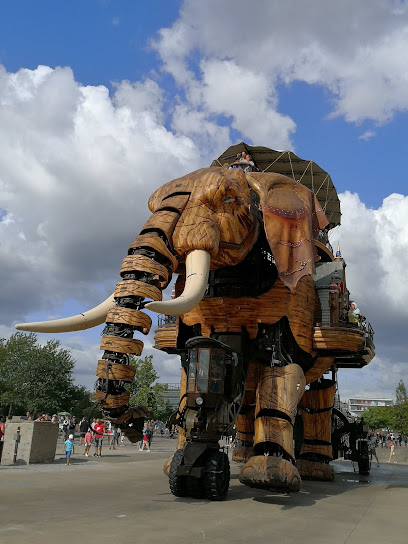
Château des ducs de Bretagne
Explore the rich history and stunning architecture of Château des Ducs de Bretagne, a must-visit castle and museum in Nantes, France.
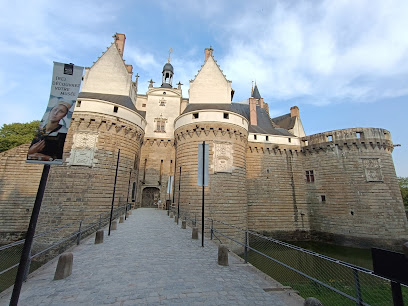
Botanical Garden
Discover the enchanting beauty of Nantes' Botanical Garden, a serene escape filled with diverse flora, peaceful pathways, and rich cultural experiences.
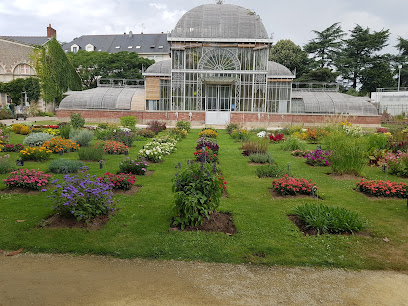
Passage Pommeraye
Experience the exquisite charm of Passage Pommeraye, a historic shopping arcade in Nantes, blending stunning architecture with unique boutiques.
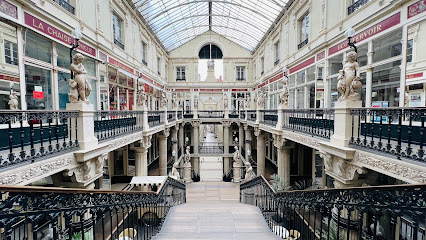
Ile de Versailles
Discover the serene beauty of Ile de Versailles, a picturesque city park in Nantes, perfect for relaxation, exploration, and enjoying nature's splendor.
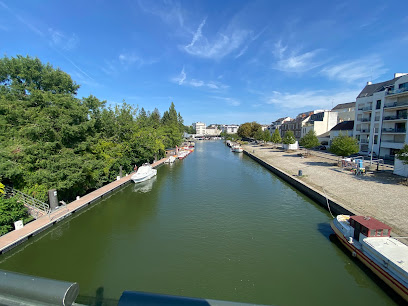
Cathédrale Saint-Pierre-et-Saint-Paul de Nantes
Explore the stunning Cathédrale Saint-Pierre-et-Saint-Paul de Nantes, a Gothic masterpiece filled with history, art, and serene beauty in the heart of the city.
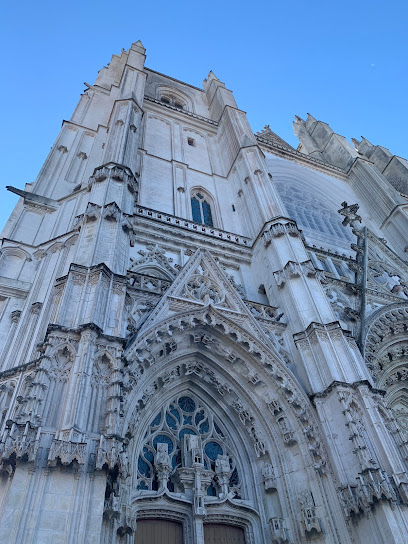
Place Royale
Experience the stunning architecture and vibrant atmosphere of Place Royale, a historical gem in the heart of Nantes, France.
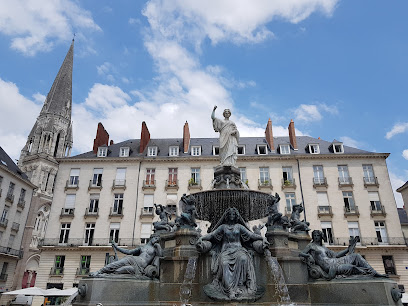
Jules Verne Museum
Explore the Jules Verne Museum in Nantes, a unique heritage site dedicated to the life and imagination of the legendary science fiction author.

Basilique Saint-Nicolas de Nantes
Discover the stunning Basilique Saint-Nicolas de Nantes, a neo-Gothic marvel adorned with intricate details and a serene atmosphere perfect for reflection.
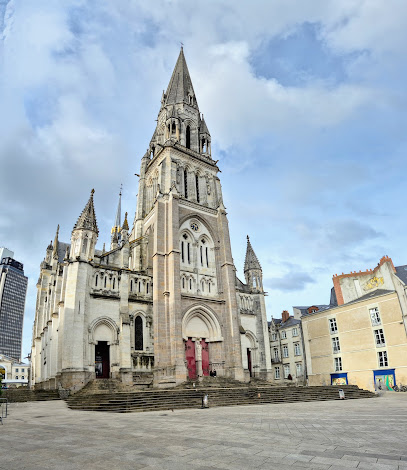
Musée d'histoire de Nantes
Explore the captivating history of Nantes through engaging exhibits at the Musée d'Histoire de Nantes, a must-visit for every tourist.
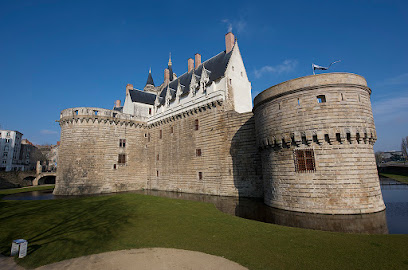
Le Voyage à Nantes
Explore Nantes like never before at Le Voyage à Nantes, your ultimate guide to the city's art, culture, and hidden gems.
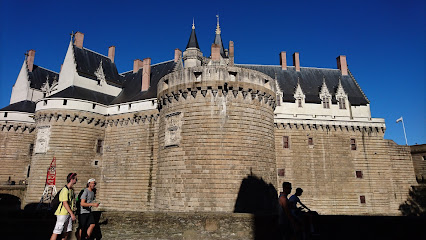
Les Anneaux de Buren
Explore Les Anneaux de Buren in Nantes, a stunning circular art installation that beautifully integrates with the scenic banks of the Loire River.
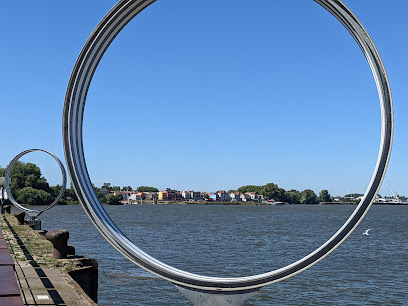
La Maison Radieuse Le Corbusier
Explore La Maison Radieuse, a masterpiece by Le Corbusier, showcasing modernist architecture and urban living concepts in Rezé, France.
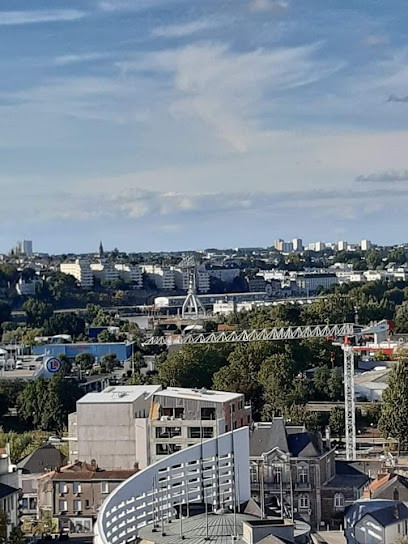
Musée Atelier de l'Imprimerie de Nantes
Explore the history and artistry of printing at Nantes' Musée Atelier de l'Imprimerie, where every visit uncovers the magic behind the printed word.
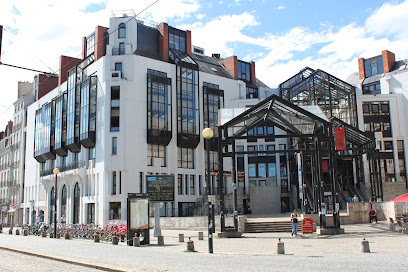
Église Sainte-Thérèse-de-l’Enfant-Jésus
Discover the architectural beauty and serene atmosphere of Église Sainte-Thérèse-de-l’Enfant-Jésus in Nantes, a tranquil retreat for reflection and appreciation.
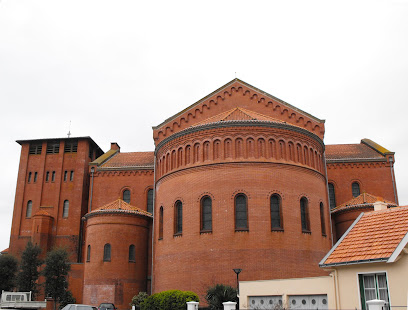
Unmissable attractions to see
Les Machines de l'Île
Explore the enchanting world of Les Machines de l'île in Nantes, where art meets engineering in a spectacular display of creativity and imagination.
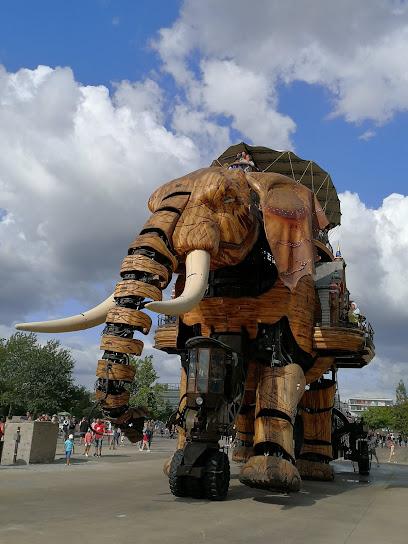
Château des ducs de Bretagne
Explore the Château des Ducs de Bretagne: A historical gem in Nantes showcasing rich heritage, stunning architecture, and captivating exhibitions.
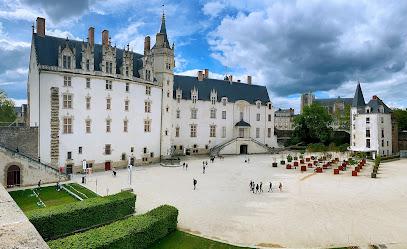
Botanical Garden
Discover the lush beauty of Nantes' Botanical Garden, a serene escape filled with diverse plant species and stunning landscapes for nature enthusiasts.
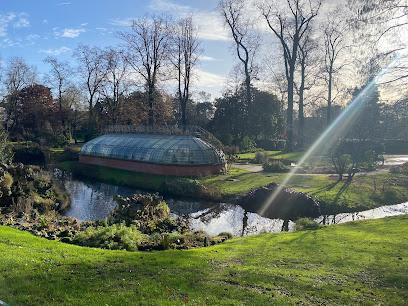
Île de Versailles
Explore the tranquil beauty of Île de Versailles in Nantes, a stunning city park and botanical garden perfect for relaxation and nature lovers.
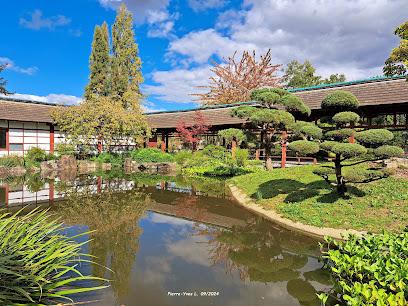
Musée d’arts de Nantes
Explore the captivating collections of Musée d’arts de Nantes, where history, culture, and creativity come alive in a stunning architectural setting.
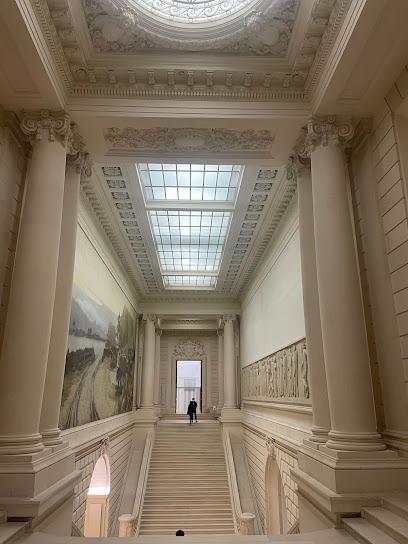
Parc de Procé
Explore the beauty of Parc de Procé, a tranquil urban park in Nantes, perfect for relaxation, family outings, and nature walks.

Château de Clisson
Explore the stunning medieval Château de Clisson, a historical gem in the heart of France, surrounded by picturesque landscapes and rich heritage.
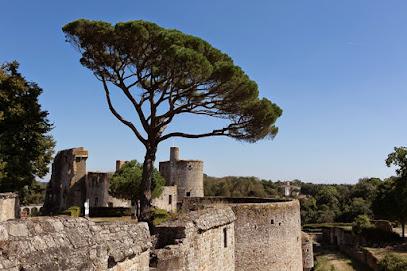
Parc du Grand Blottereau
Explore the enchanting Parc du Grand Blottereau in Nantes, a lush park filled with diverse flora, tranquil pathways, and exquisite gardens perfect for relaxation.
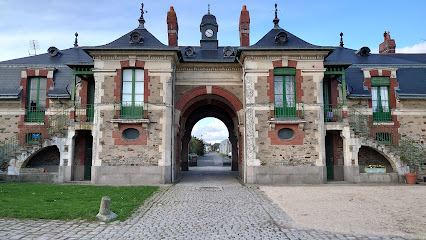
Jardin Extraordinaire
Explore the enchanting Jardin Extraordinaire in Nantes, a stunning botanical garden featuring diverse plants, beautiful landscapes, and tranquil water features.
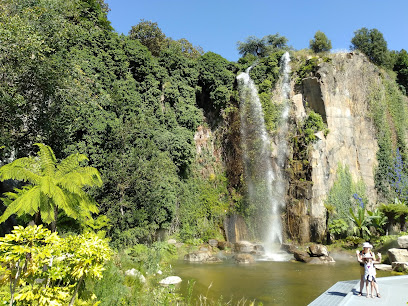
Natural History Museum
Explore the Natural History Museum in Nantes, where nature's wonders and educational exhibits await every curious traveler.
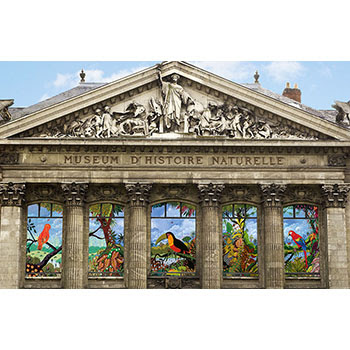
Parc de la Gaudinière
Explore the enchanting Parc de la Gaudinière in Nantes, a beautiful park perfect for relaxation, picnics, and nature walks amidst lush greenery.

Carrousel of the Marine Worlds
Explore the enchanting Carrousel of the Marine Worlds in Nantes, where art and aquatic wonders come to life in a mesmerizing amusement park experience.
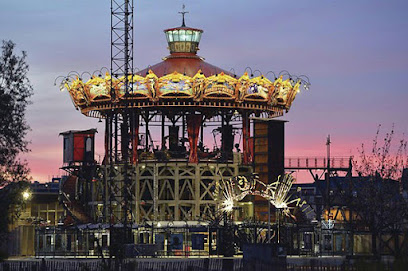
Basilique Saint-Nicolas de Nantes
Explore the stunning Basilique Saint-Nicolas de Nantes, a neo-Gothic masterpiece reflecting the city's rich maritime heritage.
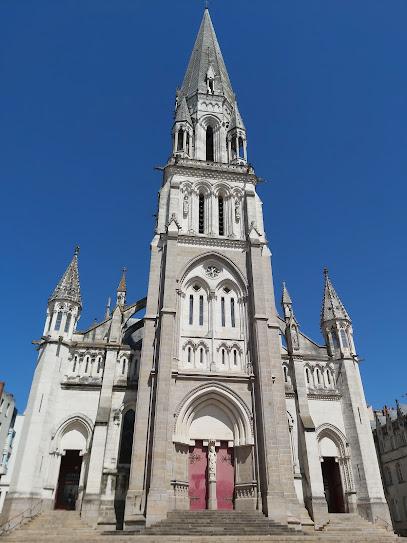
Jules Verne Museum
Explore the captivating world of Jules Verne at the museum dedicated to his life and literary genius in Nantes, France.
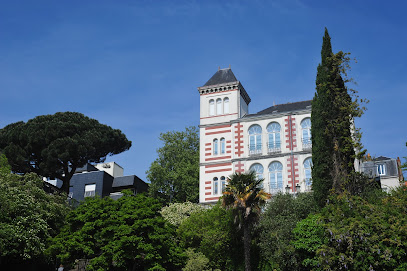
Château de Goulaine
Explore the beauty and history of Château de Goulaine, a stunning castle in Haute-Goulaine with exquisite gardens and rich winemaking traditions.
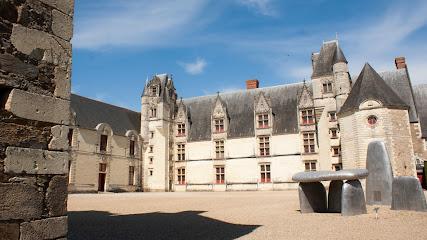
Essential places to dine
La Cigale
Discover La Cigale in Nantes - where exquisite French cuisine meets historic elegance in a vibrant atmosphere.
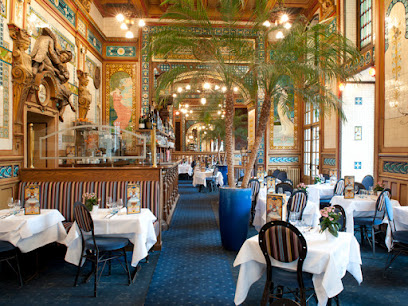
Prison Du Bouffay - Restaurant et Grillades 7/7
Discover exquisite barbecue and traditional French cuisine at Prison Du Bouffay in Nantes—a culinary experience steeped in local history.
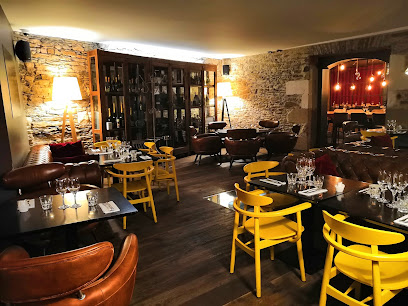
La Cantine Du Curé
Experience exquisite French cuisine and delightful crepes at La Cantine Du Curé in Nantes - a must-visit for food lovers.
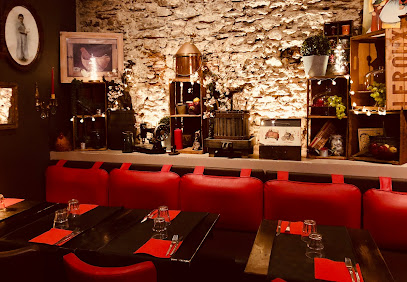
Les Fils À Maman Nantes Bouffay
Experience delightful French cuisine at Les Fils À Maman Nantes Bouffay - where nostalgia meets modern dining in the heart of Nantes.
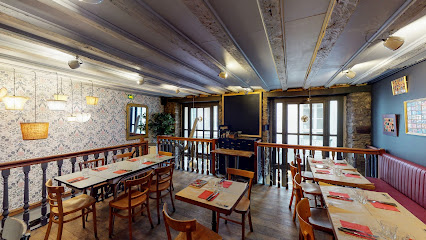
Amour de Pomme de Terre
Experience authentic French cuisine and vibrant nightlife at Amour de Pomme de Terre in Nantes – a culinary gem not to be missed.
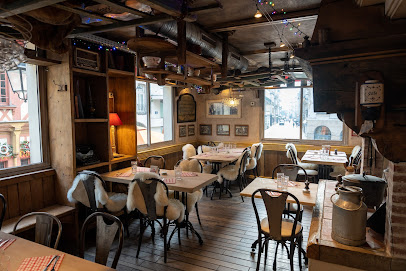
Le Cambronne Bistrot Chic
Experience authentic French cuisine at Le Cambronne Bistrot Chic in Nantes – where tradition meets taste in a charming setting.
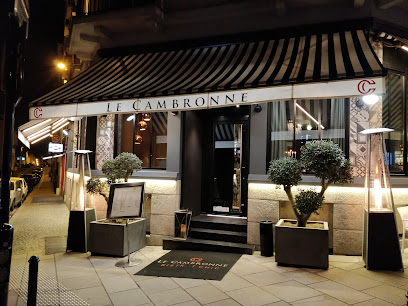
Chez Maman
Experience the heart of French cuisine at Chez Maman in Nantes, where every dish tells a story and every visit feels like home.
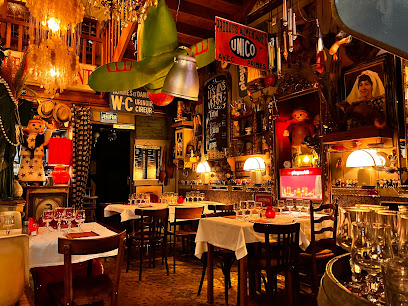
Chez Franklin
Experience authentic French cuisine at Chez Franklin in Nantes - where tradition meets flavor in every dish.
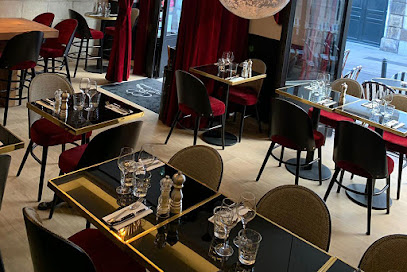
Le Bistrot Basque de Nantes
Savor authentic Spanish and Mediterranean flavors at Le Bistrot Basque de Nantes – a culinary gem in the heart of France.
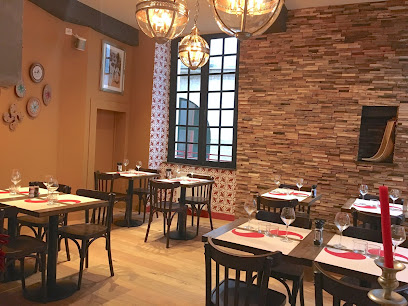
Le Fou du Roi
Discover the essence of modern French cuisine at Le Fou du Roi in Nantes – where tradition meets innovation in every dish.
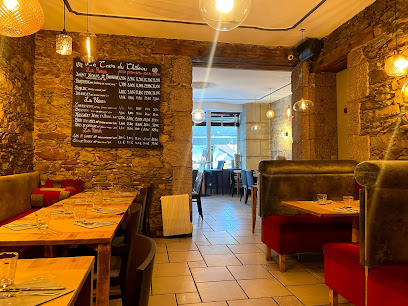
Restaurant L'Atlantide 1874 - Maison Guého
Experience exquisite French fine dining at Restaurant L'Atlantide 1874 in Nantes with breathtaking river views and exceptional culinary creations.
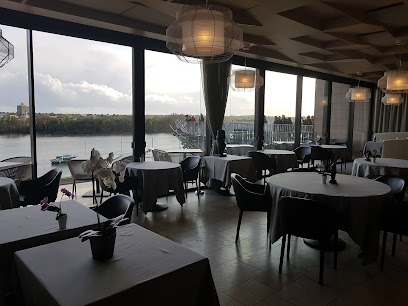
Les Pieds dans le Plat
Experience authentic French cuisine at Les Pieds dans le Plat in Nantes – where every dish tells a story.
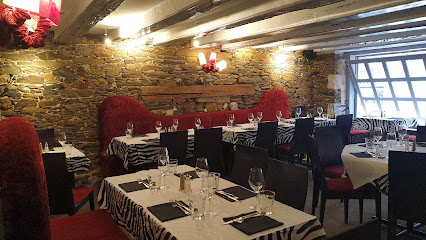
Le Reflet
Savor exquisite French cuisine at Le Reflet - Nantes' top-rated restaurant offering delightful dishes in an elegant setting.
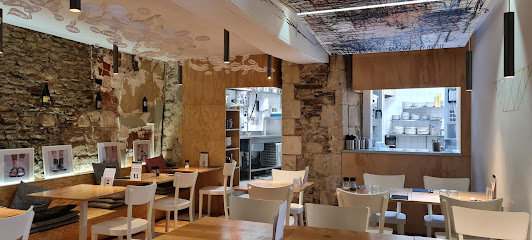
Pickles
Discover the elegance of haute French cuisine at Pickles Restaurant in Nantes—where organic ingredients meet culinary artistry.
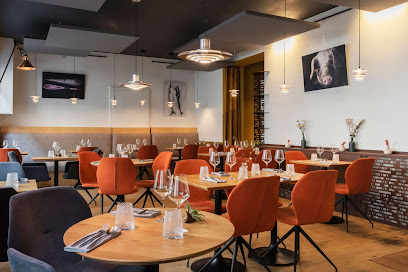
Le Bouchon
Indulge in authentic French cuisine at Le Bouchon, Nantes' premier destination for exquisite dining experiences.
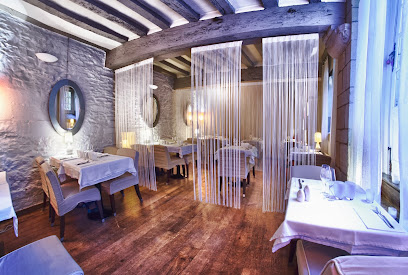
Markets, malls and hidden boutiques
Passage Pommeraye
Experience the charm of Passage Pommeraye, Nantes' historic shopping arcade, where architecture meets unique retail therapy.
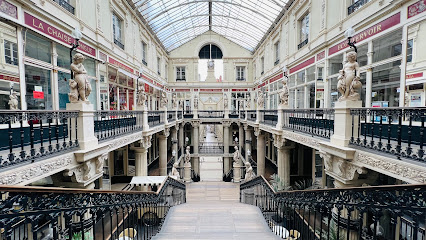
Centre Commercial Beaulieu
Explore the vibrant Centre Commercial Beaulieu in Nantes, where shopping, dining, and entertainment come together for an unforgettable experience.
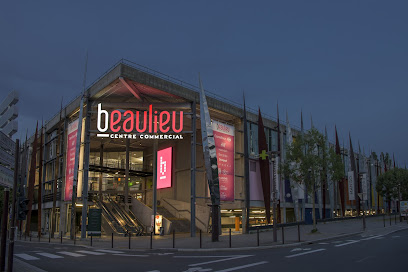
Galeries Lafayette
Discover unparalleled shopping at Galeries Lafayette in Nantes, where fashion meets sophistication in a breathtaking setting.
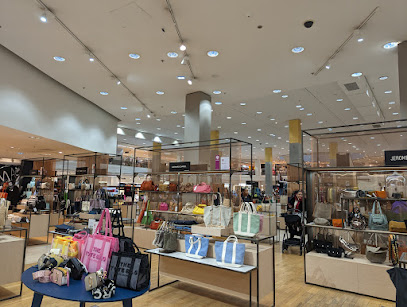
Nature and Discoveries
Discover eco-friendly gifts and unique treasures at Nature and Discoveries in Nantes, a charming gift shop celebrating nature and creativity.
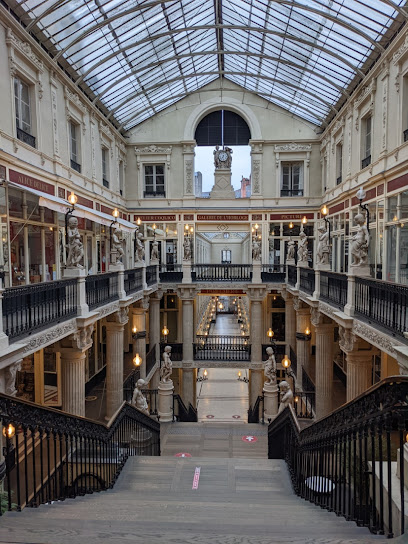
Rock A Gogo
Explore Rock A Gogo, Nantes' ultimate destination for unique clothing and accessories that celebrate individual style and creativity.
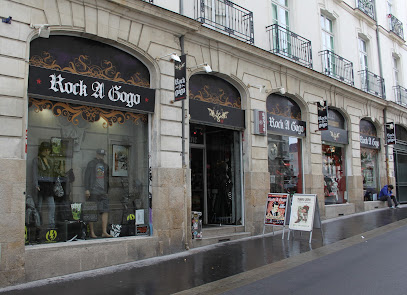
Otaku No Dera
Explore Otaku No Dera, Nantes' premier gift shop for anime and manga lovers, featuring an extensive collection of figurines and comic books.
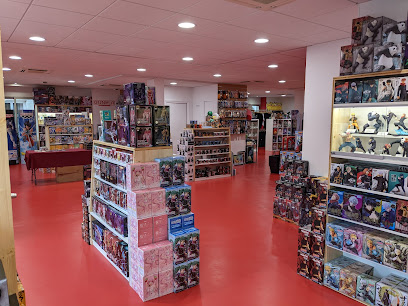
Bershka
Explore the latest fashion trends at Bershka in Nantes, where trendy clothing and stylish accessories come together for a unique shopping experience.
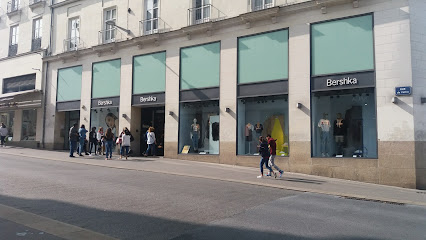
Rougier & Ple
Explore Rougier & Ple in Nantes - Your ultimate destination for art supplies, crafting materials, and creative inspiration.
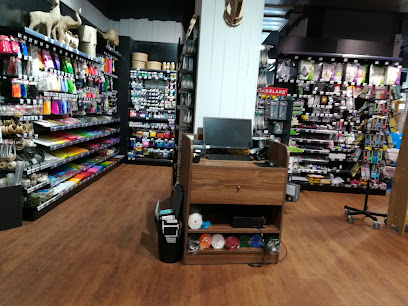
C'est deux euros Nantes
Uncover a treasure trove of bargains at C'est Deux Euros, your go-to discount store in Nantes for unique finds at unbeatable prices.
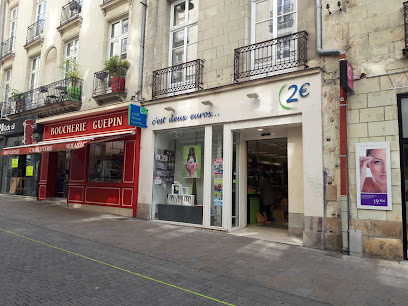
House of California
Explore the House of California in Nantes for a unique blend of fashion, art, and café culture in a charming setting.
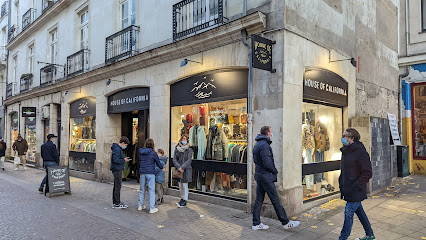
The Wizard's Shop
Experience the magic at The Wizard's Shop in Nantes; a whimsical gift shop filled with enchanting treasures for every fantasy lover.
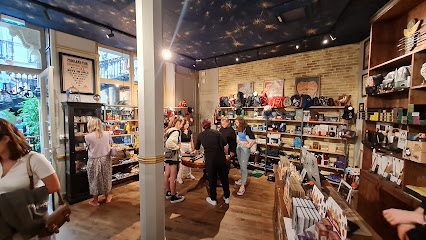
KILO SHOP NANTES
Explore KILO SHOP NANTES for a unique vintage shopping experience, offering a curated selection of pre-loved clothing and accessories in the heart of Nantes.
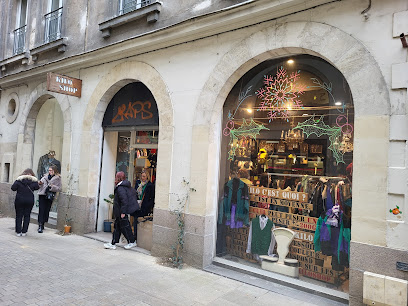
Le Comptoir Irlandais Nantes
Explore Le Comptoir Irlandais Nantes for exquisite Irish goods, gourmet delicacies, and stylish clothing, embracing Irish culture in the heart of France.
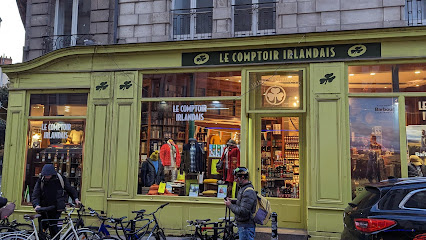
Want for Japan - The Manga-Café
Experience the unique blend of Japanese culture, manga, and entertainment at Want for Japan - The Manga-Café in Nantes, a must-visit for every tourist.
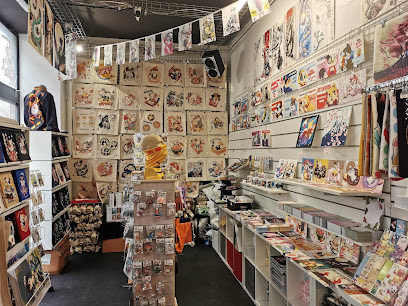
The North Face Store Nantes
Explore the latest in outdoor gear and apparel at The North Face Store Nantes, the ultimate destination for adventure seekers and outdoor lovers.
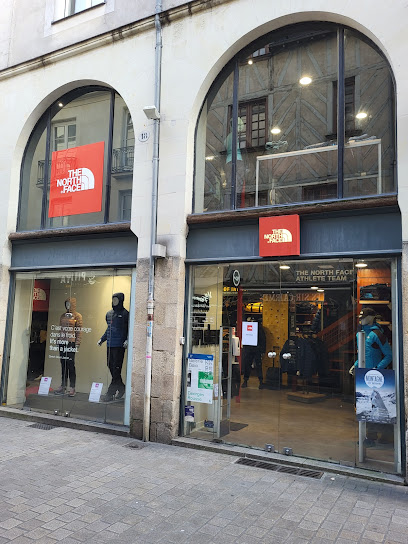
Essential bars & hidden hideouts
Gigg's Irish Pub
Discover Gigg's Irish Pub in Nantes: A lively spot for authentic Irish food, craft beers, and vibrant entertainment, perfect for an unforgettable night out.
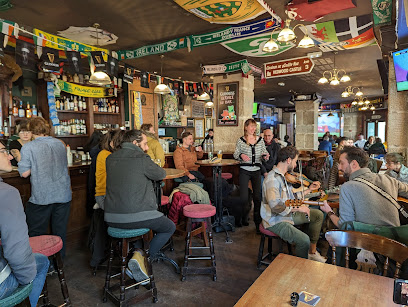
Fleming's Irish Pub - Bar à Whisky
Discover the lively atmosphere and extensive whisky selection at Fleming's Irish Pub, Nantes' premier Irish bar for music, drinks, and fun.
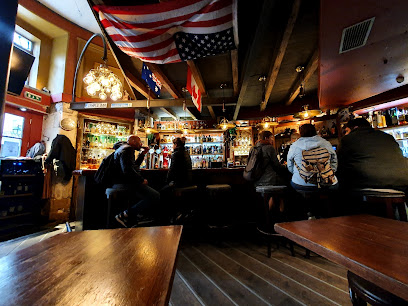
Peter Mc Cool Graslin - Irish Pub
Immerse yourself in the vibrant atmosphere of Peter Mc Cool Graslin, Nantes' favorite Irish pub, offering delicious food and drinks in a cozy setting.
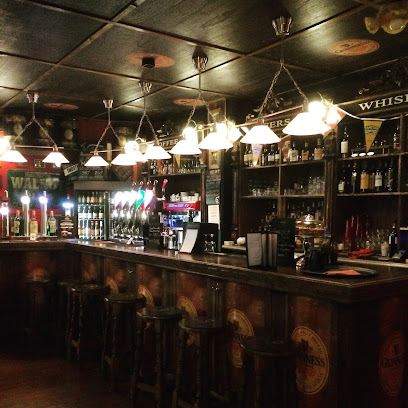
Le Labo
Experience the vibrant nightlife of Nantes at Le Labo, where innovative cocktails meet an energetic atmosphere for an unforgettable evening.
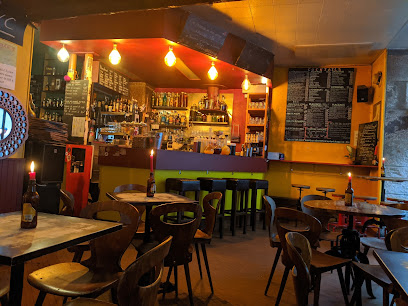
Tabarnak
Discover the lively atmosphere of Tabarnak, a vibrant bar in Nantes offering a unique selection of drinks and a taste of local culture.
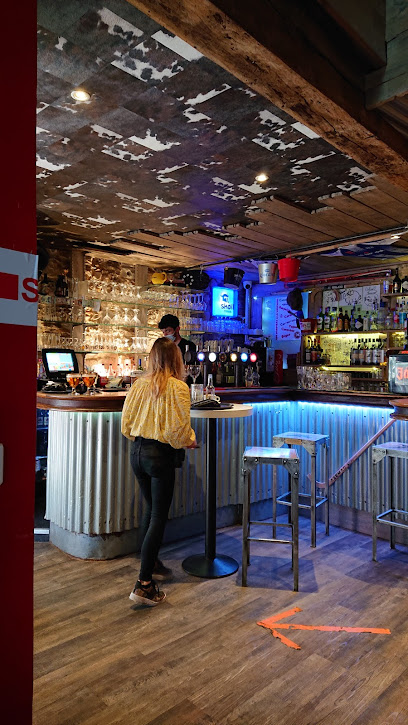
Les Berthom
Experience the vibrant atmosphere and extensive beer selection at Les Berthom, the ultimate bar and beer hall in Nantes.
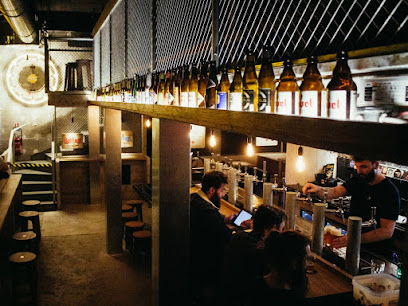
Bar Le Cercle Rouge - Nantes
Discover Bar Le Cercle Rouge, a charming bar and café in Nantes, offering an eclectic range of drinks in a vibrant atmosphere.
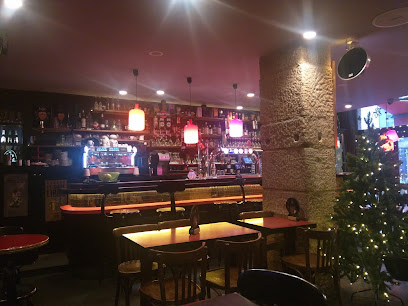
Le Perrok'
Discover the lively atmosphere of Le Perrok', a must-visit bar in Nantes offering an impressive drink selection and a vibrant nightlife experience.
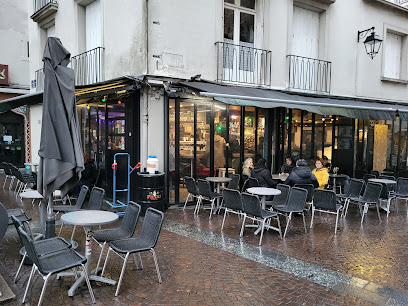
Bar Prohibition
Discover the electric vibe of Bar Prohibition, Nantes' premier sports bar, where drinks flow and sports excitement never stops.
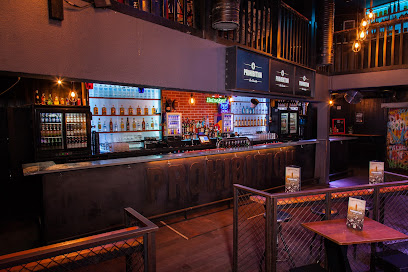
Le Bar Du Coin
Discover the vibrant nightlife of Nantes at Le Bar Du Coin, a charming bar offering a diverse drink menu and welcoming ambiance.
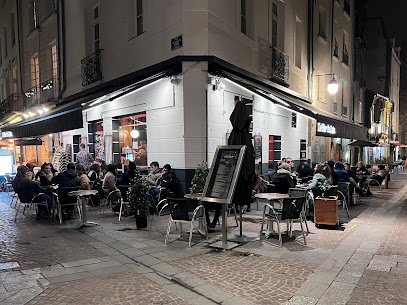
KITKAT Bar
Discover KITKAT Bar in Nantes - a cocktail haven where creativity meets flavor, perfect for a night out in this vibrant city.
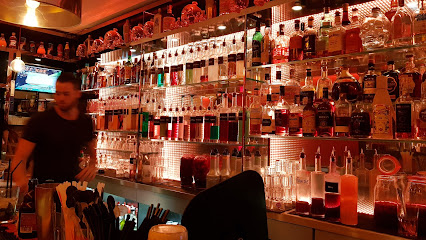
L'Univers Speakeasy
Discover the enchanting L'Univers Speakeasy in Nantes, where craft cocktails meet live jazz in an intimate, stylish atmosphere.
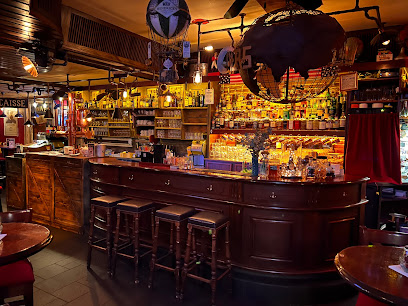
The Live Bar
Discover a vibrant nightlife experience at The Live Bar, Nantes' premier live music venue, offering great drinks and unforgettable performances.
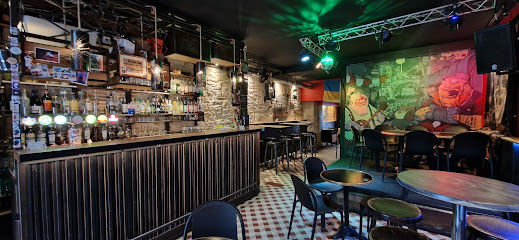
Bootlegger
Experience the vibrant cocktail culture of Nantes at Bootlegger, where creativity meets flavor in every drink.
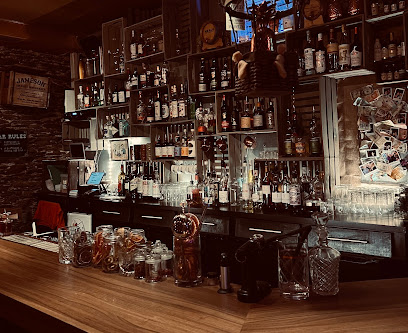
Local Phrases
-
- HelloBonjour
[bon-zhoor] - GoodbyeAu revoir
[oh ruh-vwahr] - YesOui
[wee] - NoNon
[nohn] - Please/You're welcomeS'il vous plaît / De rien
[seel voo pleh / duh ryen] - Thank youMerci
[mehr-see] - Excuse me/SorryExcusez-moi / Désolé
[ex-kew-zay mwah / day-zoh-lay] - How are you?Comment ça va?
[koh-mohn sah vah] - Fine. And you?Bien. Et vous?
[byan. ay voo] - Do you speak English?Parlez-vous anglais?
[par-lay voo ahn-glay] - I don't understandJe ne comprends pas
[zhuh nuh kohm-prahnd pah]
- HelloBonjour
-
- I'd like to see the menu, pleaseJe voudrais voir la carte, s'il vous plaît
[zhuh voo-dray vwahr lah kart, seel voo pleh] - I don't eat meatJe ne mange pas de viande
[zhuh nuh mahnj pah duh vee-ahnd] - Cheers!Santé!
[sahn-tay] - I would like to pay, pleaseJe voudrais payer, s'il vous plaît
[zhuh voo-dray pay-yay, seel voo pleh]
- I'd like to see the menu, pleaseJe voudrais voir la carte, s'il vous plaît
-
- Help!Au secours!
[oh se-koor] - Go away!Allez-vous-en!
[ah-lay voo zahng] - Call the Police!Appelez la police!
[ah-peh-lay lah po-leece] - Call a doctor!Appelez un médecin!
[ah-peh-lay uh meh-deh-sahn] - I'm lostJe suis perdu
[zhuh swee pair-doo] - I'm illJe suis malade
[zhuh swee mah-lahd]
- Help!Au secours!
-
- I'd like to buy...Je voudrais acheter...
[zhuh voo-dray zahsh-tay...] - I'm just lookingJe regarde juste
[zhuh ruh-gard zhust] - How much is it?Combien ça coûte?
[kohm-byen sah koot] - That's too expensiveC'est trop cher
[say troh shay] - Can you lower the price?Pouvez-vous baisser le prix?
[poo-vez voo bay-say luh pree]
- I'd like to buy...Je voudrais acheter...
-
- What time is it?Quelle heure est-il?
[kel uhruh eh-teel] - It's one o'clockIl est une heure
[eel eh tun uhruh] - Half past (10)Dix et demi
[dees ay dem-ee] - MorningMatin
[ma-tan] - AfternoonAprès-midi
[ah-pray mee-dee] - EveningSoir
[swahr] - YesterdayHier
[ee-air] - TodayAujourd'hui
[oh-zhoor-dwee] - TomorrowDemain
[duh-man] - 1Un
[uhn] - 2Deux
[duh] - 3Trois
[twah] - 4Quatre
[kat-ruh] - 5Cinq
[sank] - 6Six
[sees] - 7Sept
[sept] - 8Huit
[wheet] - 9Neuf
[nurf] - 10Dix
[dees]
- What time is it?Quelle heure est-il?
-
- Where's a/the...?Où est le/la...?
[oo eh luh/lah] - What's the address?Quelle est l'adresse?
[kel eh lah-dress] - Can you show me (on the map)?Pouvez-vous me montrer (sur la carte)?
[poo-vez voo muh mon-tray (sur lah kart)] - When's the next (bus)?Quand est le prochain (bus)?
[kahn eh luh pro-shahn (bus)] - A ticket (to ....)Un billet (pour ...)
[uhn bee-yay (poor)]
- Where's a/the...?Où est le/la...?
History of Nantes
-
Nantes, originally known as Condevincum, was founded by the Gallic tribe of the Namnetes around 70 B.C. The city became an important outpost for the Roman Empire by the 1st century A.D., serving as a strategic hub for trade and military movements. Roman influence can still be seen in the remnants of roads and aqueducts that once connected Nantes to other key cities in the region.
-
During the Middle Ages, Nantes rose to prominence as the capital of the Duchy of Brittany. The construction of the impressive Château des Ducs de Bretagne began in the late 15th century under Duke Francis II and his daughter Anne of Brittany. This castle served as both a defensive fortress and a luxurious residence, symbolizing the power and wealth of the duchy. The medieval period also saw the establishment of the city's first cathedral, dedicated to Saint Peter and Saint Paul.
-
One of the most significant events in Nantes' history is the signing of the Edict of Nantes in 1598 by King Henry IV of France. This edict granted substantial rights to the Huguenots, the French Protestants, and marked an important step towards religious tolerance in France. The Edict of Nantes brought an end to the violent Wars of Religion and allowed Nantes to flourish as a center of commerce and culture.
-
In the 17th and 18th centuries, Nantes became one of France's leading ports, playing a critical role in the Atlantic slave trade. Ships from Nantes would travel to Africa, the Americas, and the Caribbean, trading goods such as sugar, coffee, and slaves. The wealth generated from this trade spurred the city's growth and led to the construction of elegant mansions and public buildings, many of which can still be seen today in the historic center.
-
The French Revolution brought significant upheaval to Nantes. The city was a stronghold of the revolutionary fervor, but it also faced internal conflict and violence, particularly during the War in the Vendée, a royalist uprising. The infamous 'Drownings at Nantes' saw mass executions by drowning, ordered by the Revolutionary Committee, as a means of suppressing counter-revolutionary forces. This period left a lasting impact on the city and its inhabitants.
-
The 19th and early 20th centuries marked a period of rapid industrialization for Nantes. The city became a center for shipbuilding, food processing, and machinery manufacturing. The arrival of the railway further boosted economic development. This era also saw significant urban expansion and modernization, including the construction of new neighborhoods, public parks, and the iconic Passage Pommeraye, a stunning 19th-century shopping arcade.
-
Nantes was occupied by German forces during World War II and suffered considerable damage from Allied bombings. The city played a significant role in the French Resistance, with many locals participating in anti-German activities. After the war, Nantes underwent extensive reconstruction to repair the damage and modernize its infrastructure. This period of rebuilding laid the foundation for the city's contemporary landscape.
-
In recent decades, Nantes has reinvented itself as a vibrant cultural and artistic hub. The city has embraced its maritime heritage with the development of the Île de Nantes, a large urban renewal project that includes the Machines of the Isle of Nantes, a unique artistic and tourist attraction featuring giant mechanical animals. Nantes is also known for its active cultural scene, with numerous festivals, museums, and theaters contributing to its reputation as a dynamic and innovative city.
Nantes Essentials
-
Nantes is accessible by various means. Nantes Atlantique Airport (NTE) is the primary international gateway, located about 10 kilometers southwest of the city center. The airport is well-connected to major European cities. From the airport, you can reach the city center via taxi, shuttle bus, or tram. Additionally, Nantes is a major railway hub with frequent TGV high-speed trains connecting to Paris and other French cities. If you prefer driving, Nantes is conveniently located near major highways like the A11 from Paris and the A83 from Bordeaux.
-
Nantes boasts an efficient public transportation system, including trams, buses, and bicycles. TAN (Transports de l'Agglomération Nantaise) operates three tram lines and numerous bus routes that cover the city and its suburbs. Purchasing a day pass or a multi-day pass can be cost-effective for tourists. Nantes also has a bike-sharing program called Bicloo, which is a convenient way to explore the city. Taxis and ride-sharing services like Uber are readily available. For those who prefer driving, car rentals are accessible, but parking in the city center can be challenging.
-
The currency in France is the Euro (EUR). Credit and debit cards are widely accepted in hotels, restaurants, and shops. However, it's advisable to carry some cash for smaller establishments and markets. ATMs are plentiful throughout Nantes, and most of them accept international cards. Contactless payment methods like Apple Pay and Google Pay are also increasingly popular.
-
Nantes is generally a safe city for tourists. However, it's wise to take standard precautions. Be cautious in crowded areas like train stations and tourist spots to avoid pickpocketing. The neighborhoods of Malakoff and Dervallières have higher crime rates; it's best to avoid these areas, especially at night. Always keep your belongings secure and be aware of your surroundings.
-
In case of emergency, dial 112, the European emergency number, which connects you to police, fire, and medical services. Nantes has several hospitals, including the Centre Hospitalier Universitaire (CHU) de Nantes, which provides 24-hour emergency services. Pharmacies are widespread, and many have on-call services during nights and weekends. It's advisable to have travel insurance that covers medical emergencies.
-
Fashion: Do dress smart-casual, as the French appreciate a sense of style. Avoid overly casual wear like flip-flops and shorts unless you're at the beach. Religion: Do respect religious sites by dressing modestly and being quiet. Public Transport: Do validate your ticket when boarding trams and buses, and offer your seat to elderly passengers. Don't eat or drink on public transport. Greetings: Do greet people with a polite 'Bonjour' and a handshake. Eating & Drinking: Do try local specialties like 'galettes' and 'muscadet' wine. Don’t rush through your meal; dining is a leisurely experience in France.
-
To experience Nantes like a local, visit the Talensac Market for fresh produce and local delicacies. Enjoy a leisurely stroll along the Île de Nantes, where you can see the whimsical Machines of the Isle of Nantes. Engage with locals in the many cafés and bistros; they are often friendly and willing to share tips about the best places to visit. Don't miss the opportunity to take a boat ride on the Erdre River, which offers a unique perspective of the city.
Trending Landmark in Nantes
-
Les Machines de l'Île
-
Château des ducs de Bretagne
-
Botanical Garden
-
Passage Pommeraye
-
Ile de Versailles
-
Cathédrale Saint-Pierre-et-Saint-Paul de Nantes
-
Place Royale
-
Jules Verne Museum
-
Basilique Saint-Nicolas de Nantes
-
Musée d'histoire de Nantes
-
Le Voyage à Nantes
-
Les Anneaux de Buren
-
La Maison Radieuse Le Corbusier
-
Musée Atelier de l'Imprimerie de Nantes
-
Église Sainte-Thérèse-de-l’Enfant-Jésus
Nearby Cities to Nantes
-
Things To Do in Angers
-
Things To Do in Rennes
-
Things To Do in La Rochelle
-
Things To Do in Saint-Malo
-
Things To Do in Tours
-
Things To Do in St. Clement
-
Things To Do in St. Helier
-
Things To Do in Gorey
-
Things To Do in St. Aubin
-
Things To Do in St. Brelade
-
Things To Do in St. Peter
-
Things To Do in St. Lawrence
-
Things To Do in Trinity
-
Things To Do in St. Ouen
-
Things To Do in Caen


















